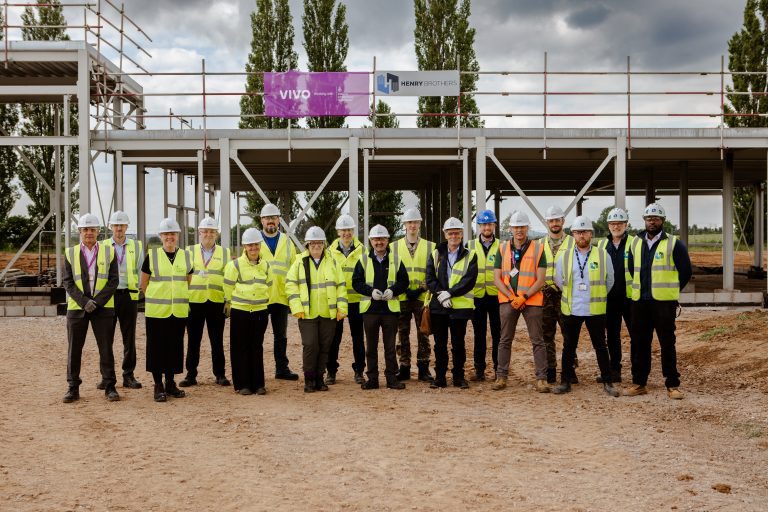THE multi-million-pound project to enhance policing services in East Lancashire has officially commenced, following the completion of enabling works on site. Located in Carr Road, Nelson, the new police station will bring together and replace existing stations in Colne and Nelson, providing a new home for Pendle’s policing operations under the Lancashire Constabulary. The new facility will be delivered with the support of multi-disciplinary consultancy Pick Everard, which collaborated closely with contractor Willmott Dixon to reach this latest milestone. A multi-purpose policing hub, the new base will host several different policing teams, including neighbourhood, crime scene investigation and response teams. Integrating closely with the local community, a front counter has also been designed for residents to report issues and seek help directly. Pick Everard has provided a full suite of services to Lancashire Constabulary to secure planning consent for the facility in Nelson, including quantity surveying, principal design, mechanical and electrical, structural and civil engineering, architecture and sustainability. Andy Robinson, director at Pick Everard, said: “This is a modern policing facility that has been designed with both public and private need in mind. It is situated adjacent to an existing public park, with several different amenities close by, ensuring that residents don’t feel isolated or cut off from these vital services. The aim is to really integrate this police station with the local community, whilst delivering a highly efficient base, equipped with the latest technology and a sustainable design, to secure Pendle’s policing operations for generations to come. “The high specification will also ensure productivity and comfort for staff, with tall windows flooding the environment with natural light, alongside an energy-efficient thermal design. We’re looking forward to working closely with Lancashire Constabulary and Willmott Dixon to bring this exciting project to fruition.” Targeting a sustainable design, the new station will include provision for renewable energy, with an array of photovoltaic panels on the roof and a high level of thermal performance afforded through the building design. Rainwater management is also being provided on site to attenuate flow, with low consumption sanitary ware further minimising water reliance. A multi-storey car park, with 30 electric bays, are also included in plans to scale with Pendle’s future electric fleet. Anthony Dillon, managing director of Willmott Dixon in the north, said: “We are really proud to be able to play our part in ensuring Lancashire officers have the crucial facilities and the very best support to keep the people of Pendle safe. “We are focused on leaving a lasting legacy beyond bricks and mortar and that’s why we will be supporting the Lancashire economy by using local businesses and creating local employment opportunities whenever possible during construction.” Andrew Snowden, police and crime commissioner for Lancashire, said: “It’s great to see work start on the new Pendle Police Station, securing a state-of-the-art base that supports the fight against crime for years to come, and ensure people feel safe across the area. “The new facility is part of a wider investment in policing infrastructure across the Lancashire region. This latest development will ensure that the Pendle district is well-equipped to deal with the challenges of modern policing and will provide a vital resource for local officers in the years to come.” Superintendent Derry Crorken from Lancashire Constabulary’s East Division said: “This is a milestone moment for policing in Pendle – one which we feel will ultimately help us to provide a better quality of service to the public. “Once complete, the new building will see a massive improvement to our working environment, providing vital support to officers and staff who deliver frontline services to keep the area safe.” The new police station in Pendle is expected to be operational by Autumn 2025. For more information on Pick Everard and the services it provides, visit https://www.pickeverard.co.uk/. Building, Design & Construction Magazine | The Choice of Industry Professionals














